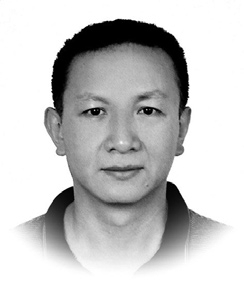
Winton Dong dht0620@126.com THE Chinese journal Glaciology and Geocryology went viral recently, not for its top-tier taste and high quality, but for publishing a 30-page paper eulogizing its chief editor and his wife. Glaciology and Geocryology is a prestigious journal run by the Chinese Academy of Sciences with a focus on subjects such as ice, snow, frozen earth and the cryosphere. The essay in question now was published by the journal in a 2013 issue. Thanks to Chinese netizens, it has been dug out and shared on social media after being in circulation for almost seven years. The research paper, subsidized by the national natural science fund, reads: “This essay discusses the greatness of my teacher and the beauty of his wife.” The “teacher” was later found to be the then chief editor of the journal. It is ridiculous that such a sentence and others like it were not placed in the credit section of the essay but rather appeared in the main text. Many Chinese researchers and netizens have shown their discontent and even nausea over the news, criticizing the practice of publishing something of no academic value as shameful and a waste of resources. Academic misconduct is not an uncommon phenomenon in China. In many Chinese universities and higher learning institutions, famous professors and Ph.D. tutors who have administrative power, research funds or other academic resources are often called “bosses” by their students. Under these circumstances, students are prone to cater to the special demands of such professors and tutors in order to get more money, quicker promotions or other vested interests. As we all know, academic research is arduous and painstaking. In order to gain special advantages, some researchers attempt to get quick fame and money by so-call shortcuts such as cheating or other forms of misconduct. However, shortcuts may prove to be the fastest way to get lost. Cao Xuetao, president of top-notch Nankai University and an academician of the Chinese Academy of Engineering, is now under investigation for suspected academic misconduct. On Nov. 14, 2019, U.S. researcher Elisabeth Bik claimed on academic exchange platform Pubpeer that she had found traces of possible inappropriate “image duplication” in the graph results of 18 papers supervised by Cao. Cao later responded to the questioning and apologized for his lack of oversight in the set of published papers suspected of having duplicated images, though he stressed that he is still confident in the validity and strength of the scientific conclusions presented in the papers. In my point of view, as a top scientist, there is no excuse for any lapse in supervision, not to mention the fact that so many suspected duplicated images have been discovered. Although China is the leading country in terms of the numbers of universities and published scientific papers, the fame of Chinese schools – even the ones as famous as Nankai – is too fragile, vulnerable and lacking trustworthiness. The overall quality of Chinese research papers also needs to be improved because they are now widely cited across the world. This may be the reason why more and more rich Chinese families prefer to send their children to the United States or European countries for further study. Academic authenticity and integrity are the bases of academic development and social progress. Nevertheless, punishments for research misconduct are either too light or do not exist at all in China. In the U.S. and Europe, academic cheating will generally lead to resignation, dismissal or even criminal charges, but such accountability is not very common in China. In order to clean up the scientific research ecosystem, deeper reform of the scientific management and appraisal system should be carried out in China to improve the academic appraisal system. Moreover, in recent years, Chinese scientific governing bodies have stipulated and issued many guidelines for research integrity and set penalties for misconduct. But if no real, meaningful action is taken to punish those violators, various policies to maintain academic integrity will remain only empty talk. (The author is the editor-in-chief of Shenzhen Daily with a Ph.D. from the Journalism and Communication School of Wuhan University.) | 
